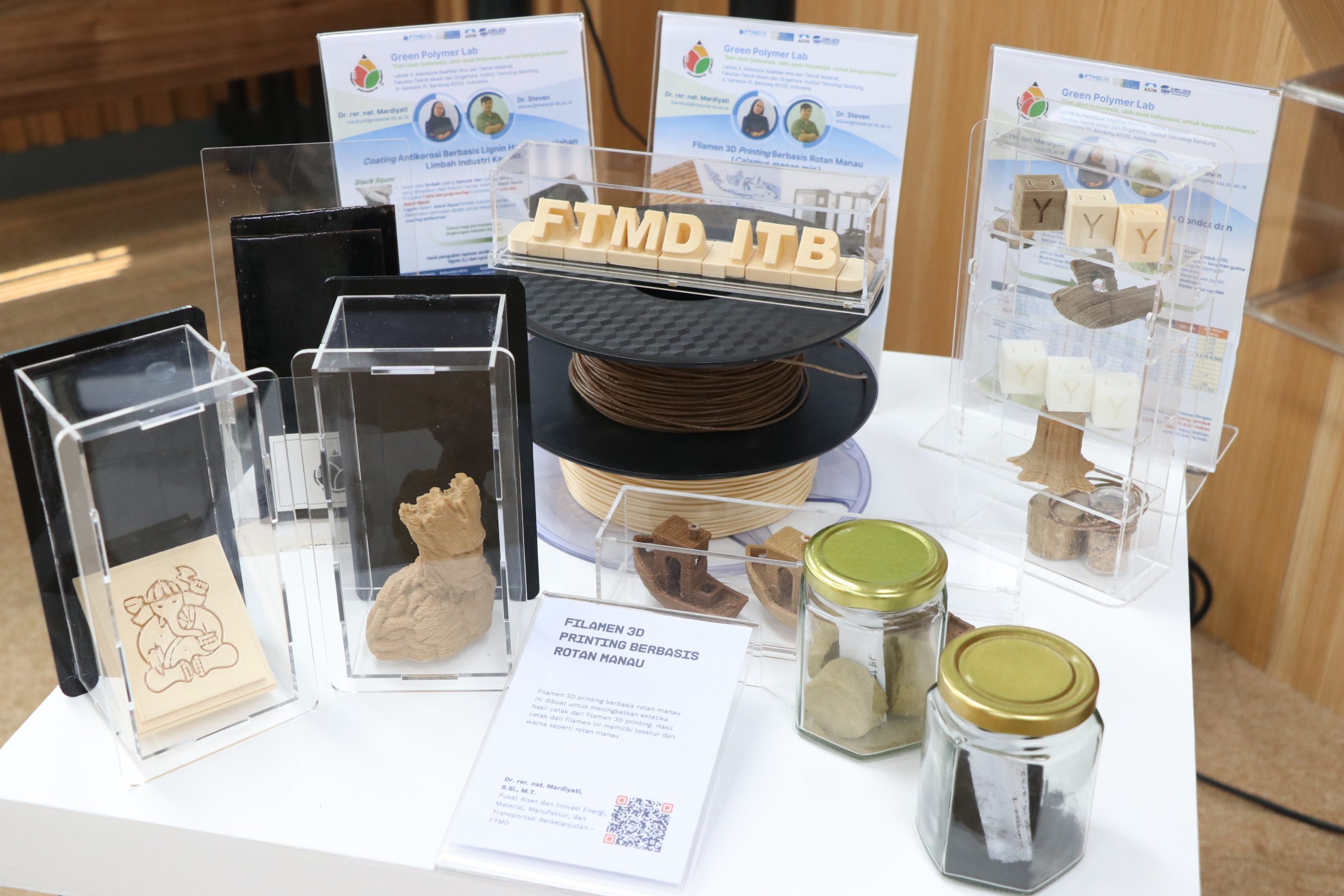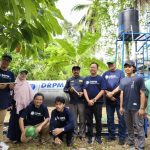Sustainable Innovations at Green Polymer Lab ITB: Transforming Natural Resources into Innovative Products
Green Polymer Lab is a laboratory within the Materials Engineering at ITB, led by Dr. rer. nat. Mardiyati. This lab focuses on the research and development of products based on Indonesia’s natural resources. Born from Dr. Mardiyati’s vision of Indonesia’s potential in developing bio-based materials, Green Polymer Lab strives to harness Indonesia’s natural wealth to create advanced materials.
Dr. Mardiyati recognizes that Indonesia is rich in natural materials with significant development potential. Indonesia possesses natural rubber not found in other countries and unique bio-polymers that sometimes only grow in Indonesia. This potential is a national treasure that should be leveraged to create innovative and sustainable materials.
During the ITB Jakarta Campus Open House (May 29-30, 2024), Green Polymer Lab showcased several innovations from their team. Here are some of these innovations:
1. Biomass Briquettes from Water Hyacinth and Cocoa Shells
Briquettes are commonly used as solid fuel to start and sustain fires, with coal briquettes being the most widely used. However, using coal briquettes has significant environmental impacts. To address this issue, Green Polymer Lab developed more sustainable and environmentally friendly biomass briquettes from water hyacinth and cocoa shells.
Water hyacinth is an invasive plant that often disrupts aquatic ecosystems but has the advantage of low sulfur content. Cocoa shells, which usually end up as food waste, are also utilized in this innovation. With a composition of 25% water hyacinth and 75% cocoa shells, Green Polymer Lab successfully created biomass briquettes with performance comparable to coal briquettes.
2. 3D Printing Filament from Manau Rattan
The ever-growing trend of 3D printing in various industrial sectors inspired Green Polymer Lab to develop 3D printing filament based on manau rattan. Manau rattan was chosen not only for its aesthetic value but also for being environmentally friendly and a solution for the relatively challenging processing of rattan. This innovation opens new opportunities for utilizing rattan and provides a more sustainable alternative in the 3D printing industry.
3. Anti-Corrosion Coating Based on Lignin from Paper Industry Waste
The paper industry often faces challenges in processing waste from the delignification process, resulting in lignin or black liquid that is corrosive. Green Polymer Lab developed an anti-corrosion coating based on lignin as a solution to this problem. This innovation not only addresses the waste issue in the paper industry but also provides an environmentally friendly alternative coating.
4. Repurposing Masks for Shoe Production
In an effort to reduce waste, Green Polymer Lab also developed a method to repurpose masks that failed quality assurance tests into fabric that can be used to make shoes. This innovation is a tangible step in reducing mask waste while creating valuable products.
The innovations developed by Green Polymer Lab demonstrate Indonesia’s significant potential in transforming natural resources into sustainable and environmentally friendly products. Under the guidance of Dr. rer. nat. Mardiyati, this lab continues to advance research and innovation that can greatly benefit the environment and society.







